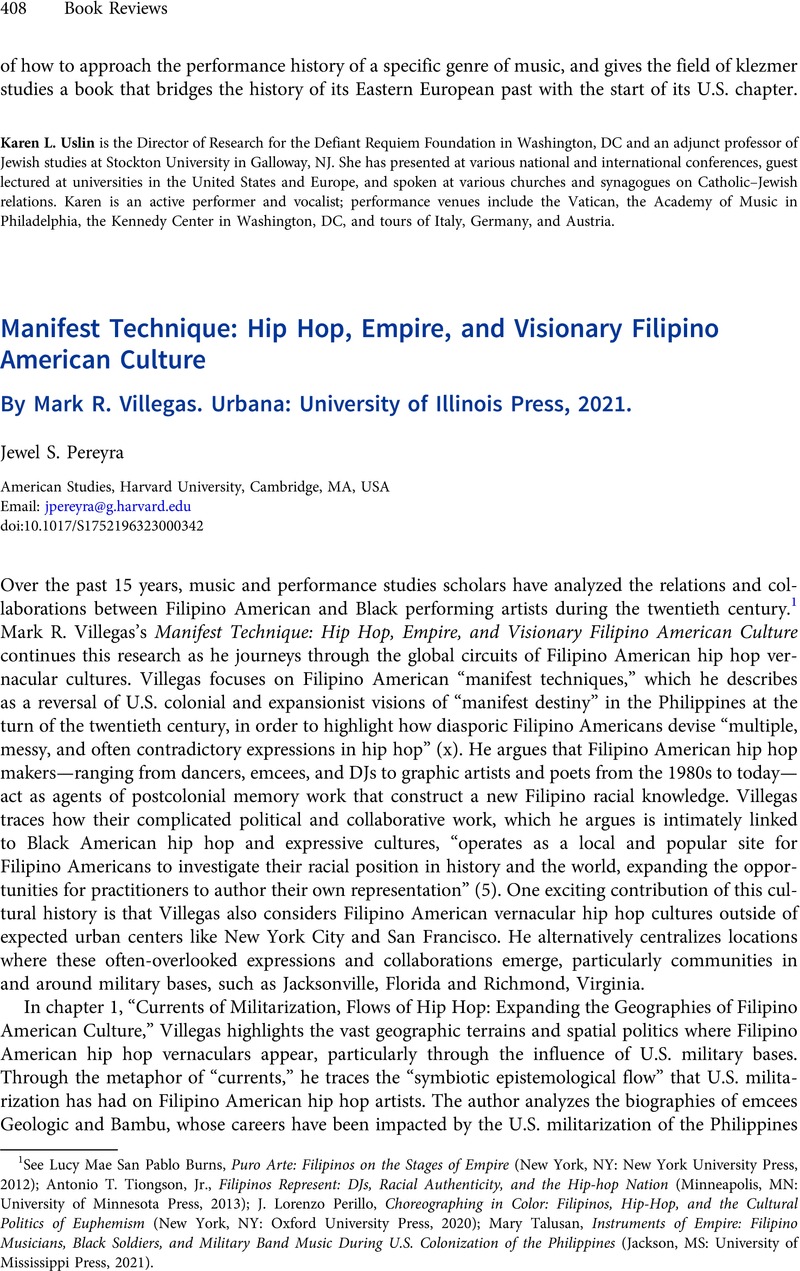No CrossRef data available.
Published online by Cambridge University Press: 16 November 2023

1 See Pablo Burns, Lucy Mae San, Puro Arte: Filipinos on the Stages of Empire (New York, NY: New York University Press, 2012)Google Scholar; Tiongson, Antonio T. Jr., Filipinos Represent: DJs, Racial Authenticity, and the Hip-hop Nation (Minneapolis, MN: University of Minnesota Press, 2013)CrossRefGoogle Scholar; Perillo, J. Lorenzo, Choreographing in Color: Filipinos, Hip-Hop, and the Cultural Politics of Euphemism (New York, NY: Oxford University Press, 2020)CrossRefGoogle Scholar; Talusan, Mary, Instruments of Empire: Filipino Musicians, Black Soldiers, and Military Band Music During U.S. Colonization of the Philippines (Jackson, MS: University of Mississippi Press, 2021)Google Scholar.
2 See for example, Guest Editor Snorton, C. Riley, “The Queerness of Hip Hop/The Hip Hop of Queerness,” Palimpsest: A Journal on Women, Gender, and the Black International 2, no. 2 (2013), vi–xCrossRefGoogle Scholar.
3 Chang, Jeff, Can't Stop Won't Stop: A History of the Hip-Hop Generation (New York, NY: Picador, 2005)Google Scholar; Sharma, Nitasha Tamar, Hip Hop Desis: South Asian Americans, Blackness, and a Global Race Consciousness (Durham, NC: Duke University Press, 2010)Google Scholar; Wang, Oliver, Legions of Boom: Filipino American Mobile DJ Crew in the San Francisco Bay Area (Durham, NC: Duke University Press, 2015)Google Scholar; Powell, Elliott H, Sounds from the Other Side: Afro-South Asian Collaborations in Black Popular Music (Minneapolis, MN: University of Minnesota Press, 2020)Google Scholar.